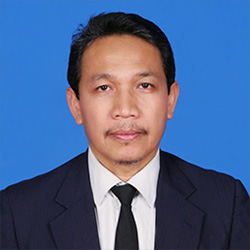
Suparman Samsidi
Bandung Health Polytechnic, IndonesiaTitle: Prototype of digitalized imaging sensor improved accuracy and precision in anthropometry nutritional assessment
Abstract
Stunting is a form of chronic malnutrition among toddlers with a prevalence high category both at the National and West Java Provincial levels respectively 24.4% and 24.5% in y 2021, so within 5 years Lastly, stunting has become one of the national priorities programs. During this time measuring and stunting assessment is based on anthropometric methods, namely body height and body length measurement. Manually anthropometric measurements, still show large variations in accuracy and precision both intra and inter-personal. The research aims to produce prototype tools for anthropometric measurements of body height and body length for toddlers based on digital imaging sensor technology. Research in the first and second years was conducted in the laboratory scheme and the third year in the community scheme. Developing prototype designs of body height and body length anthropometric measurements was carried out at the Laboratory of Automation Engineering and Mechatronics of Bandung Manufacturing Polytechnic and the Nutritional Status Assessment Laboratory of Bandung Health Polytechnic. Acceptable level measurement error (ALME) was used to measure accuracy in 1% intra-personal and 2% inter-personal. Functional testing for the digitalized imaging sensor prototype for body height and body length is limited to 5 and 10 sample toddlers in a laboratory scheme and 70 samples of toddlers in a community scheme. The results of the laboratory scheme demonstrated the accuracy of each intra-prototype with ALME < 1% (0.02%-0.39%) and < 1% or 0.51 mm. For the community scheme, precision measurements of body height and body length using a digitalized imaging sensor tool produced accuracy levels of 98,32% and 99,15%, and precision levels of 99.61% and 98.57% respectively. Both digitalized imaging sensor tools have limitations is need sufficient lighting.
Biography
Suparman Samsidi has completed his Doctoral Program at the Faculty of Human Ecology of IPB University, Indonesia. He is a Senior Lecturer at the Nutrition Department of Bandung Health Polytechnic, Indonesia. He has many publications from his research studies related to public nutrition issues such as the role of nutrition and synbiotics on tuberculosis disease, the coping strategy of poor households to food insecurity, quality assurance of nutrition services in health centers, a study of identification among determinant factors of stunting, development of stunting elimination model in micro level, prototype development of imaging sensor based anthropometric digitalized equipment. He is the chief of the health research ethical committee at his institution. He is a reviewer of many accredited journals.

